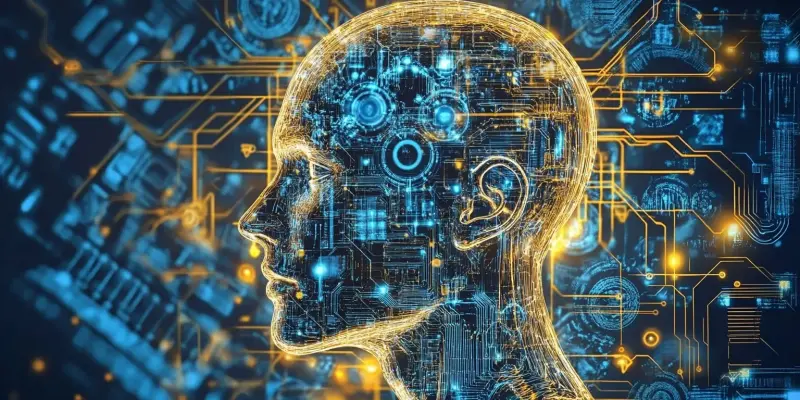The world of scientific research constantly seeks ways to accelerate discoveries, and Google has offered a groundbreaking solution with the introduction of an AI system known as the AI co-scientist. Powered by the Gemini 2.0 AI model, this innovative tool is poised to revolutionize the way researchers approach their work. With its specialized multi-agent system focused on various scientific tasks, the AI co-scientist is not yet publicly available but brings promising potential to scientific endeavors.
Specialized AI Agents Enhancing Research
Generation and Hypothesis Refinement
One of the key features of Google’s AI co-scientist lies in its ability to collaborate with human researchers by generating and refining hypotheses. This process begins with the Generation agent, which can produce multiple potential hypotheses based on initial seed ideas proposed by the scientists. Researchers can easily communicate their research goals and preliminary concepts in natural language, and the AI system takes it from there, developing a range of hypotheses for further investigation. The collaborative nature ensures that the tool enhances human scientific thought rather than attempting to replace it.
Following generation, the AI co-scientist utilizes its Reflection agent to critically assess generated hypotheses for their plausibility and relevance. This step is crucial as it allows the system to sift through numerous ideas and discard those lacking scientific merit. By iteratively refining these hypotheses with the help of other agents, the AI co-scientist ensures that the most viable options are presented for further action. This reflective process, combined with continuous feedback from human scientists, helps to focus research efforts on the most promising avenues.
Ranking and Evaluation
In addition to generating new hypotheses, the AI co-scientist includes agents dedicated to ranking and evaluating these ideas. The Ranking agent plays a pivotal role in prioritizing hypotheses based on their potential impact and feasibility, taking into consideration various scientific factors and previous research findings. By ranking the hypotheses, the system ensures that the most promising ideas receive attention first, thereby streamlining the research process and maximizing the use of available resources.
Evaluation is carried out by the Evolution agent, which iteratively tests and assesses the ranked hypotheses. Through this agent, the AI co-scientist can perform simulations, analyze experimental data, and check the consistency of the hypotheses with existing knowledge. Essential to this evaluation process is the use of sophisticated AI models and resources such as web searches, which provide additional context and validation. The end result is a set of well-examined and thoroughly vetted hypotheses that researchers can confidently pursue.
Advanced Tools and Collaborations
Meta-Review and Test-Time Compute Scaling
Understanding that scientific research requires rigorous review mechanisms, Google’s AI co-scientist incorporates a Meta-review agent to further enhance the reliability of its outputs. This agent conducts an extensive review of refined hypotheses, ensuring that they adhere to scientific standards and methodologies. Meta-review adds another layer of scrutiny, helping to prevent biases and errors that might have been overlooked in previous stages. The AI system’s commitment to rigorous review is critical in maintaining the credibility and trustworthiness of its contributions to science.
A unique capability of the AI co-scientist is its test-time compute scaling feature, which allows it to verify and improve its responses actively. This scalability means that the system can utilize more computational power during critical evaluation phases to perform exhaustive testing and refinement. By dynamically scaling its computational resources, the AI co-scientist can ensure thoroughness and accuracy in its analysis, leading to more reliable and actionable research outcomes. This adaptability is a significant advantage in handling complex scientific inquiries.
Promising Applications and Ongoing Evaluations
Google’s CEO, Sundar Pichai, has highlighted several promising early results achieved by the AI co-scientist in areas such as liver fibrosis treatments, antimicrobial resistance, and drug repurposing. These initial successes underscore the potential of the AI system to make substantial contributions to biomedical research and other scientific fields. By enabling more efficient hypothesis generation, refinement, and evaluation, the AI co-scientist can accelerate the pace of discovery and innovation.
The system is currently undergoing evaluation through a Trusted Tester Programme, which involves research organizations that have been invited to participate. This pilot phase aims to assess the efficacy and overall impact of the AI co-scientist in real-world research settings. Feedback from these collaborations will be invaluable in fine-tuning the system and determining its full potential. The insights gained will help Google optimize the tool for broader deployment in the scientific community.
A Collaborative Future for Scientific Advances
Scientific research is always looking for ways to speed up discoveries, and Google has provided an innovative solution with the launch of an AI system called the AI co-scientist. This cutting-edge tool is driven by the Gemini 2.0 AI model and aims to transform how researchers conduct their studies. The AI co-scientist employs a specialized multi-agent system that focuses on a variety of scientific tasks, greatly enhancing the efficiency and effectiveness of research processes. Although not yet accessible to the public, this technology holds significant promise for advancing scientific projects. Google’s AI co-scientist could significantly boost the pace and precision of discoveries across multiple scientific domains, reflecting the company’s commitment to leveraging advanced AI in solving complex scientific challenges. The anticipation surrounding the release of this AI-powered tool highlights its potential to make meaningful impacts in various scientific fields, setting a new standard for technological integration in research.

